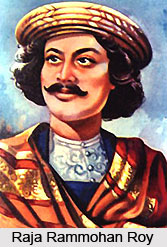 Indian society was reformed during the renaissance period by many social reformers and the foreign rule. The dynamic west forced India to re-examine the postulates of social thinking and laws. In this endeavour the main incentive has been provided by the social and religious reformers of the modern India. The state has been neutral. Prohibition of sati was a law that was enforced. By the regulation of 1829, 4th December, Sati was declared illegal. Other laws were also passed related to the banning of infanticide, throwing of children into the sea in fulfilment of a religious vow or killing girl child, the suppression of the thugs , the abolition of slavery, discontinuance of the state lotteries in the Presidency towns, stoppage of Human sacrifice and many more to be mentioned. Through the Courts and legislature the state has made some attempt to suppress social evils.
Indian society was reformed during the renaissance period by many social reformers and the foreign rule. The dynamic west forced India to re-examine the postulates of social thinking and laws. In this endeavour the main incentive has been provided by the social and religious reformers of the modern India. The state has been neutral. Prohibition of sati was a law that was enforced. By the regulation of 1829, 4th December, Sati was declared illegal. Other laws were also passed related to the banning of infanticide, throwing of children into the sea in fulfilment of a religious vow or killing girl child, the suppression of the thugs , the abolition of slavery, discontinuance of the state lotteries in the Presidency towns, stoppage of Human sacrifice and many more to be mentioned. Through the Courts and legislature the state has made some attempt to suppress social evils.
The greater share in rousing public opinion against social inequalities has been taken by private individuals and bodies. Raja Ram Mohan Roy and his band of followers protested against the social abuses like the rigours of caste, the degrading position of women, the `Sati` custom and the degrading position of the peasantry. The Prarthana Samaj led by Ranade established foundling asylums and orphanages, night schools, Widows` homes, Depressed Classes Mission, Widow Marriage Association and the Deccan Education Society. The Brahmo Samaj struggled for the removal of the Purdah System, introduction of widow-remarriage, abolition of polygamy and early marriages, provision of higher education, inter-dining, inter-caste marriages and removal of social barriers to foreign travel. Under the Deccan Education Society, the famous Fergusson College was started in Pune. This society included Gokhale as one of its members. Ishwar Chandra Vidyasagar was foremost in the cause of the uplift of women. Gokhale founded the Servants of India Society with the object of training national missionaries for the service of India. Social Service leagues were started, boy-scouts were trained, libraries, night schools, co-operative societies, nurseries, entertainments for the poor, sanitation, medical relief, trade unions and newspapers were provided for.
The Parsi community also went in for social and religious reforms and the Sikhs under the Chief Khalsa Diwan advocated liberal reforms in society and culture. Under the inspiring leadership of Mahatma Gandhi all these reforms received further impetus and in particular the conditions of women and the untouchables vastly improved.
Depressed classes started their own associations to fulfil their interests. Health and sanitation were looked after by semi-official societies like St. John`s Ambulance Association and also by the state under the department of public health. Right from the third decade of the nineteenth century Indians were awakened to their social duties.



















